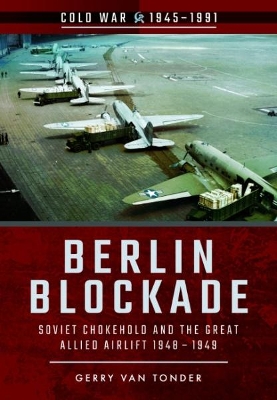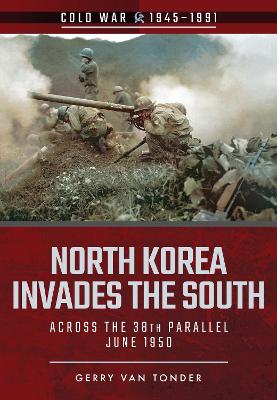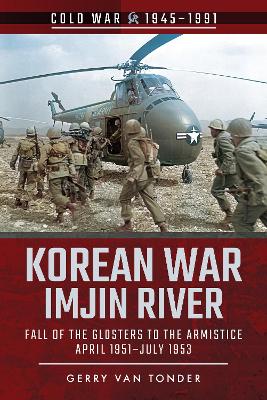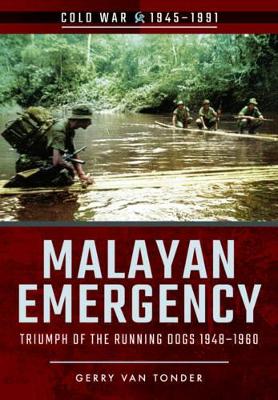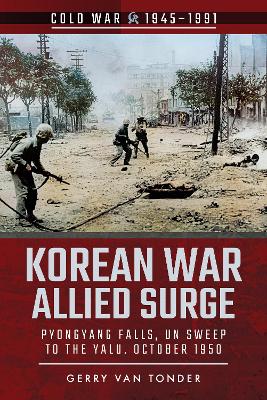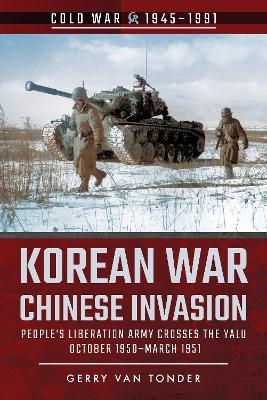Cold War, 1945-1991
9 total works
In a war of attrition, diplomatic bluff and backstabbing, and mobilizing of forces, the West braced itself for a third world war.
Truman, in compliance with a UN Security Council resolution, appointed that iconic Second World War veteran, General Douglas MacArthur, commander-in-chief of forces in Korea. The first in a six-volume series on the Korean War, this publication considers those first few fateful days in June 1950 that would cement north south antagonism to this day, the pariah state that is communist North Korea a seemingly increasing threat to an already tenuous global peace.
Shortly before midnight on 22 April 1951, to the west of the US Eighth Army's defensive front, the Chinese Sixty-third Army fell on the British 29th Brigade. On the left flank, the 1st Battalion, Gloucester Regiment ( Glosters') held a tenuous position at a ford on the Imjin River. Despite a gallant defence, the battalion was pushed back to make a desperate but futile stand on Hill 235\. On what became known as Glosters' Hill', the battalion ceased to exist. It was subsequently estimated that the attacking force of 27,000 Chinese troops suffered 10,000 casualties, forcing the Chinese army to be withdrawn from the front.
From August 1951 to the summer of 1952, the USAF conducted Operation Strangle in a futile and costly attempt to disrupt Chinese supply routes. In the last two years of fighting, Communist Chinese and UN forces faced each other from well-entrenched positions in hilly terrain, where mapped hill numbers were contested. From June 1952 to March 1953, a series of five hard-fought engagements took place in central Korea as the antagonists sought ownership of Hill 266, commonly referred to as Old Baldy'. This was followed during April-July 1953 by two tactically pointless battles over Pork Chop Hill, in which the UN forces won the first battle and the Chinese the second, with both sides sustaining major casualties. On 27 July 1953, the two belligerents signed an armistice agreement, implementing a ceasefire that stands to this day. De facto, the Korean War has never ended.
Malaya was of significant strategic and economic importance to Britain. In the face of an emerging communist regime in China, a British presence in Southeast Asia was imperative. Equally, rubber and tin, largely produced in Malaya by British expatriates, were important inputs for British industry. Typically, the insurgents, dubbed Communist Terrorists, or simply CTs, went about attacking soft targets in remote areas: the rubber plantations and tin mines. In conjunction with this, was the implementation of Mao s dictate of subverting the rural, largely peasant, population to the cause. Twelve years of counter-insurgency operations ensued, as a wide range of British forces were joined in the conflict by ground, air and sea units from Australia, New Zealand, Southern and Northern Rhodesia, Fiji and Nyasaland.
Despite a warning from Beijing that it will intervene if US forces cross the 38th, MacArthur uses the UN's conditional authorization to land elements of the US X Corps at Wonsan and Riwon in North Korea. The Eighth US Army and South Korean forces capture the North Korean capital, P'y?ngyang, while American paratroops make the first combat jump of the conflict at Sunch'?n and Sukch'?n, cutting the road to the Chinese border.
While MacArthur's ground forces edge closer to the Yalu River, and the general having designs of chasing the retiring North Koreans across the river into China, in October 1950 the Chinese politburo immediately deploys 200,000 members of the 13th Army Group of the newly titled People's Volunteer Army (PLA) on a pre-emptive defensive' operation into North Korea.
Communist Chinese forces, that have been secretly infiltrating North Korean territory by slipping across the Yalu from mid-October 1950, ambush a South Korean regiment in the mountains of central North Korea. This is the first of several Chinese victories over unsuspecting and overstretched South Korean and American units in the winter of 1950/1.
On 27 November 1950, Chinese leader Mao Zedong, ostensibly fearful of the consequences of hostile American forces on his country's border along the Yalu River, orders 250,000 troops into Korea, with express orders to annihilate the UN forces. In the western half of the theatre, US General Walton H. Walker's Eighth Army front along the Ch'?ngch'?n axis is breached, while to the east, the US X Corps suffers a series of crushing defeats, including at the Chosin Reservoir, precipitating a massive evacuation from the North Korean port of Hungnam.
